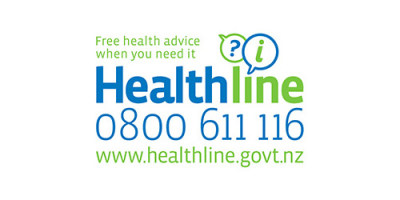Keeping your home warm and dry
Warm homes are healthy homes. The World Health Organisation recommends indoor temperatures of at least 18°C, or 20°C for houses with young children, elderly people or ill people.
Keeping a house at a comfortable temperature is important for mental and physical wellbeing and can reduce the risk of respiratory infections.
- Heat pumps (especially with thermostats, which keep costs down)
- Electric heaters
- Wood burners
- Wood pellet burners
Coal, gas and oil-fired are not as safe or efficient. Unflued gas heaters can increase asthma and other respiratory problems and add pollutants to the air. This includes carbon monoxide, high levels of which can even lead to death. Gas braziers and patio heaters should never be used inside. Burning treated timber or old furniture is dangerous as doing so releases poisonous chemicals into the air.
For more on choosing a heat source, click here.
Consider:
- Using a dehumidifier. Dehumidifiers are more affordable to run than heat pumps and can help your house be warmer. Dry air is less expensive to heat than damp air. Keep it in a central location and aim for humidity between 30% and 50%. If there is a baby in the household, consider keeping a dehumidifier in the room the baby sleeps in. Learn more about dehumidifiers here.
- Using auto fan mode for heat pumps: auto fan allows the fan to run at a level required to maintain the set temperature.
Resources:
If you need help with winter energy bills:
- Talk to Work and Income to see if they can help you with your winter energy bills.
- Your household might be eligible for the Winter Energy Payment from Work and Income.
- The payment can help you with the cost of keeping your home warm during the winter months.
- Your electricity retailer is there to help too and may be able to offer flexible payment plans. Call them to ask what is available.
- Connect with your Iwi
- Register your interest with Whānau Power. They can navigate dependable powers suppliers and healthy whare solutions with you.
If you need help affording firewood:
If you’re over 65:
- Age Concern can link you with Social Work support to help you access resources, services and information you may need this winter. Call them on (03) 544 7624.
If you need assistance affording bedding, curtains, heaters, or clothes, contact:
- St Vincent de Paul
- Call (03) 548 9372 (Nelson); (03) 547 7351 (Stoke); (03) 544 0893 (Richmond, Moteuka and Golden Bay); (03) 573 5475 (Picton), or (03) 577 8378 (Blenheim) and ask to speak to the Welfare Support worker.
- The Salvation Army
- Nelson: Call (03) 548 4807 and ask to speak to the Social Work team or email [email protected]
- Blenheim: Call (03) 578 0862 and ask to speak to the Social Work team or email [email protected]
Keep heat in:
- Curtains – closing your curtains at night prevents heat loss from the windows, and opening them during the day lets the sun heat your home.
- If you use an alternative to curtains, like sheets or lavalava, make sure they are snug-fitting to prevent drafts of cold air.
- The Salvation Army can arrange curtains. If cost is a barrier, please speak to the Social Work team. Call (03) 548 4807 or email: [email protected]
- Draught stoppers – check that draughts of cold air aren’t coming in around your windows and doors. A draught stopper or a rolled up towel at the bottom of doors can help.
Keep the damp out:
Damp houses are harder to heat and condensation (moisture on walls, windows, and furniture) can lead to mould growth. Damp and mould affects our respiratory health and are associated with respiratory tract infections and asthma.
To reduce dampness:
- Open doors and window to air out your house
- Dry clothes outside when possible
- Reduce condensation: put lids on pots when cooking, use extractors fans in the bathroom and kitchen
- Remove condensation from windows with a towel or a condensation squeegee
- Pull beds and mattresses away from the walls to let air circulate
- Remove any mould with white vinegar or a bleach solution
- Use a dehumidifier: they use less energy than a heatpump, and can help your heatpump run better.
Keeping your home warm and dry this winter
Click to view this helpful guide on how to keep your home warm and dry this winter.
Page last updated: 20/06/2022






